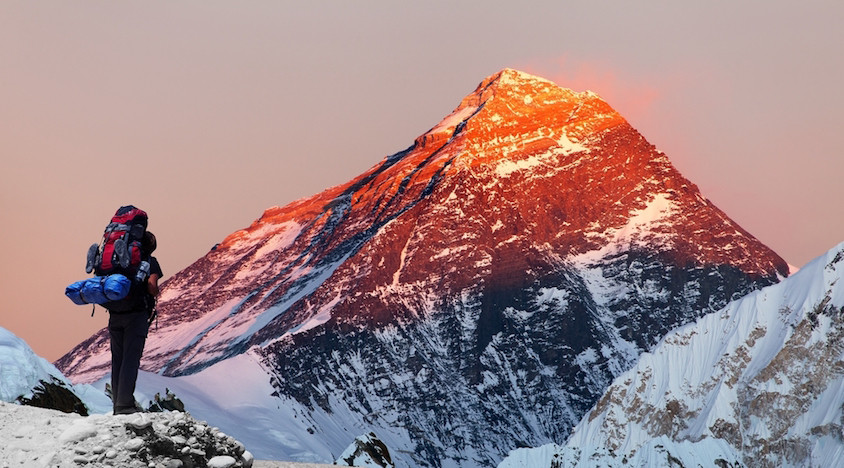Nine Nepalese climbers have successfully reached the top of Everest this Wednesday, marking the official beginning of the climbing season.
The climbers are the first to have climbed from base camp to summit in two years, as the past two seasons have been marred by disaster; in 2014 16 Sherpa guides were killed by a falling serac in the Khumbu Icefall, and last year a more widespread disaster was caused by a serious earthquake in the region. Both incidents resulted in the mountain being closed to climbers.
In 2013, some 700 climbers reached the summit of Everest. In 2014, Chinese climber Wang Jing and her five Sherpa guides reached the summit, however she allegedly flew over the Khumbu Icefall by helicopter. No ascents were recorded in 2015 as a result of the earthquake.
This year, around 289 paying climbers and their guides have begun scaling the mountain and are expected to follow in the footsteps of the initial nine Sherpas, who were employed by the guiding companies to finish fixing ropes to the summit ridge.
May is traditionally the best month for climbing Everest due to favourable weather conditions, presenting a brief window between the harsh cold of winter and the unstable monsoon season.
Despite the general sense of optimism for this year’s climbing season, several concerns have been cited including an ongoing sense of dissatisfaction among some Sherpas who feel they are often poorly treated and left largely unsupported by the Nepalese government. The issue of climate change is another, with warmer air temperatures increasing the rate of falling seracs and avalanches.
Two Slovakian climbers have already been caught out by a minor avalanche on Everest this week, becoming trapped above Camp 2 while attempting a more dangerous route up the mountain. The two climbers, Vladimìr Strba and Zoltàn Pàl were flown to Kathmandu on Wednesday to be treated for frostbite.
A new concern for this season has arisen in regards to reports of newer, cheaper guiding companies operating on the mountain, causing some questions regarding safety to emerge.


